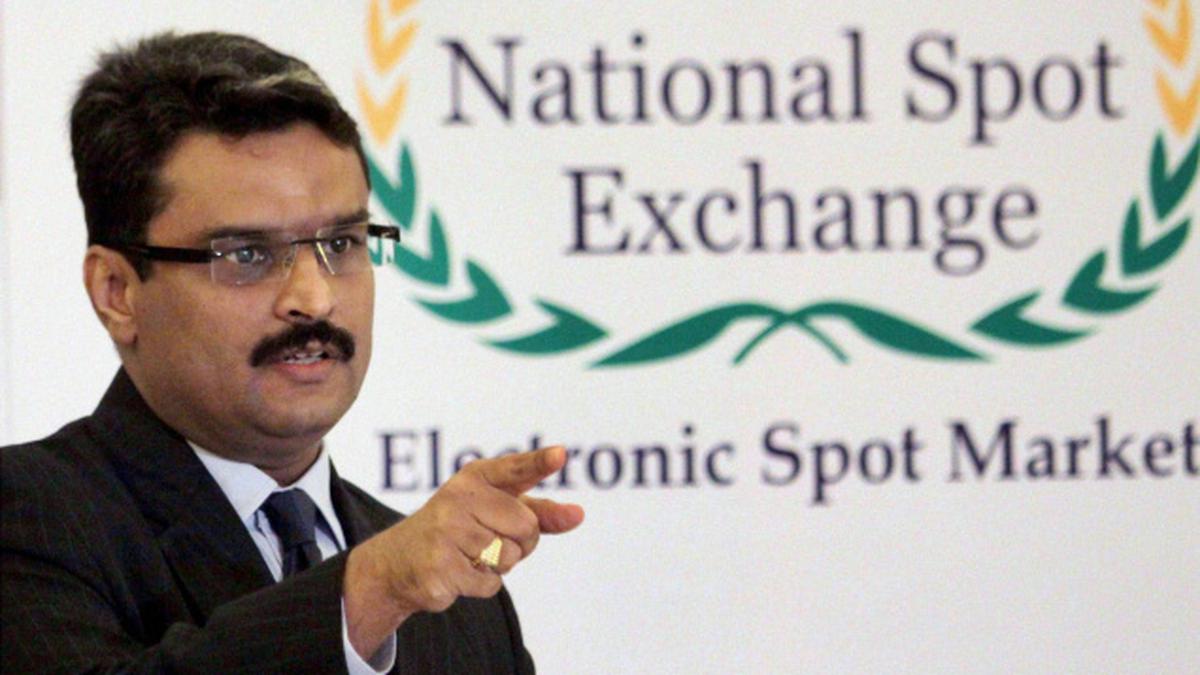The NSEL Scam: The Rise and Fall of Jignesh Shah

Jignesh Shah, often referred to as the “Exchange King,” was a prominent Indian entrepreneur who rose to fame as the founder of Financial Technologies India Ltd (FTIL). His vision for transforming India’s financial landscape led him to create several exchanges, with the National Spot Exchange Limited (NSEL) being one of his flagship ventures. Shah’s ambition was to build efficient and transparent market platforms to streamline India’s financial ecosystem.
Background of NSEL
National Spot Exchange Limited (NSEL), a subsidiary of FTIL, was launched with the goal of facilitating seamless spot commodity trading in India. The exchange gained significant attention for its innovative approach, but it became infamous due to the NSEL scam, a financial scandal that shook the Indian financial market.
Jignesh Shah’s Early Life and Family
Jignesh Shah was born into a middle-class Gujarati family in Mumbai. His early life was marked by hard work and a keen interest in technology, which led him to pursue an engineering degree in electronics and telecommunications. Despite his modest beginnings, Shah’s entrepreneurial spirit propelled him into the world of finance.
Key Facts:
• Education: Shah graduated with a degree in electronics and telecommunications engineering.
• Family: Shah met his wife in second grade, and they later married. They have a daughter, with whom Shah shares a strong familial bond Shah’s journey from humble beginnings to leading a billion-dollar empire demonstrates his resilience and vision, though it also ended in controversy.
The NSEL Scam
The NSEL Scam is one of the most significant financial frauds in India’s history. It came to light in 2013, although the fraudulent activities had been ongoing for several years.
Mastermind Behind the Fraud
Jignesh Shah, alongside several other officials at NSEL, was accused of orchestrating the scam, which involved exploiting regulatory loopholes and engaging in fictitious trading to deceive investors. The scam’s fraudulent activities led to massive financial losses and legal repercussions for those involved.
The Scam Amount
The estimated scale of the fraud amounted to a staggering ₹5,574.34 crore (around $750 million at the time), with over 13,000 investors left vulnerable to the massive default on payments.
Modus Operandi of the NSEL Scam
The NSEL scam relied on exploiting gaps in the regulatory framework and created a false sense of legitimacy among investors:
- Fictitious Trading: NSEL allowed trading of non-existent commodities, generating an illusion of high trading volumes and returns.
- Paired Contracts: Investors were sold contracts that promised guaranteed returns, a clear violation of the spot exchange rules.
- Collusion with Borrowers: Borrowers continued to trade on the exchange without repaying debts or delivering commodities.
- Regulatory Loopholes: NSEL capitalized on the lack of oversight from multiple regulatory bodies, evading scrutiny.
- False Assurances: Investors were misled with false assurances regarding the safety of their funds.
How the Scam Was Uncovered?
The NSEL scam began to unravel in July 2013 when the exchange defaulted on payments totaling ₹5,574 crore. This led to the suspension of trading operations and a subsequent investigation by authorities:
• Payment Crisis: Investors were left without their due payments, sparking outrage.
• Regulatory Scrutiny: The Economic Offences Wing (EOW) and Enforcement Directorate (ED) initiated probes into the scandal, uncovering widespread malpractices.
Arrest of Jignesh Shah
Jignesh Shah was arrested by the EOW on May 7, 2014, facing multiple charges, including fraud, conspiracy, and money laundering. Though granted bail in August 2014, Shah was arrested again by the ED in 2016, continuing the legal battle surrounding the scam.
Also Read: The PACL Scam
The Aftermath of the NSEL Scam
- Ongoing Legal Battles
Shah’s legal proceedings continue, with several cases still pending in Indian courts. - Asset Attachments
The Enforcement Directorate (ED) has attached assets linked to Shah and his companies in an attempt to recover funds. - Regulatory Reforms
The NSEL scam led to significant regulatory changes in India’s commodity markets. Stricter guidelines were introduced to prevent future frauds and ensure transparency in spot trading exchanges. - Investor Recovery Efforts
While efforts to recover the lost funds continue, the full recovery of the defrauded amount remains uncertain. Legal action against defaulters and asset liquidation has provided some relief to investors. - Corporate Consequences
FTIL, the parent company of NSEL, was declared “not fit and proper” to operate exchanges and was ordered to reduce its holdings in various market platforms.
Conclusion: Lessons from the NSEL Scam
The NSEL scam serves as a stark reminder of the dangers of inadequate regulatory oversight and systemic vulnerabilities. While it tarnished the reputation of Jignesh Shah as an entrepreneur, it also triggered significant reforms within India’s financial sector. The scam underscores the critical need for robust compliance mechanisms, transparent financial practices, and investor education to safeguard against such large-scale frauds in the future.
By understanding the NSEL scam, investors can remain vigilant and recognize the importance of thorough due diligence in their financial ventures.


